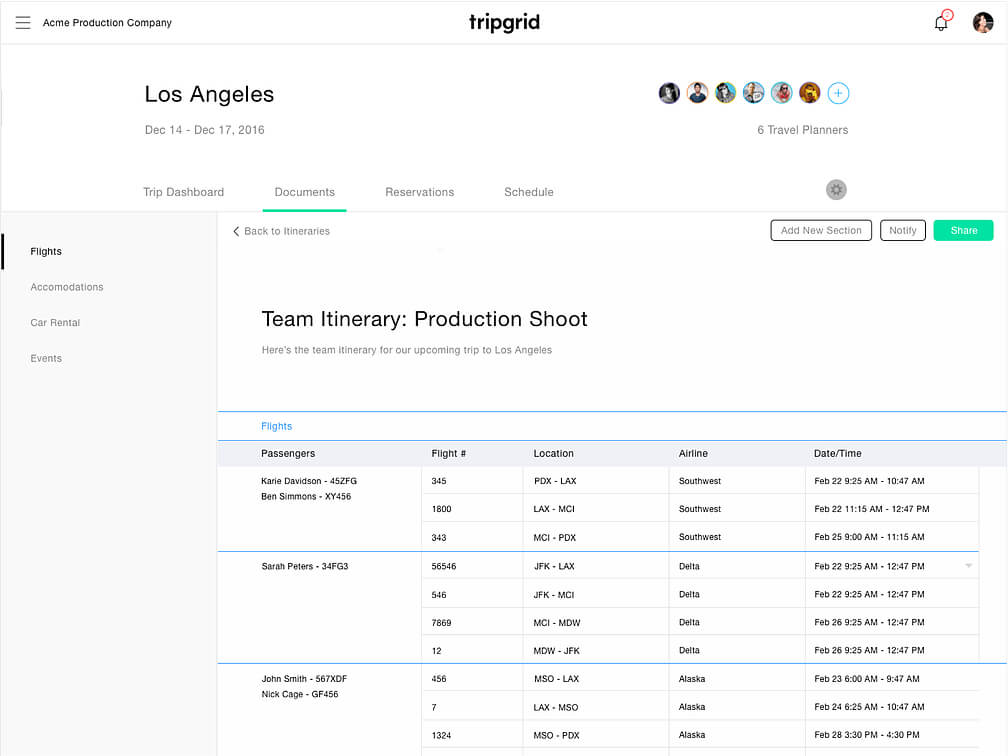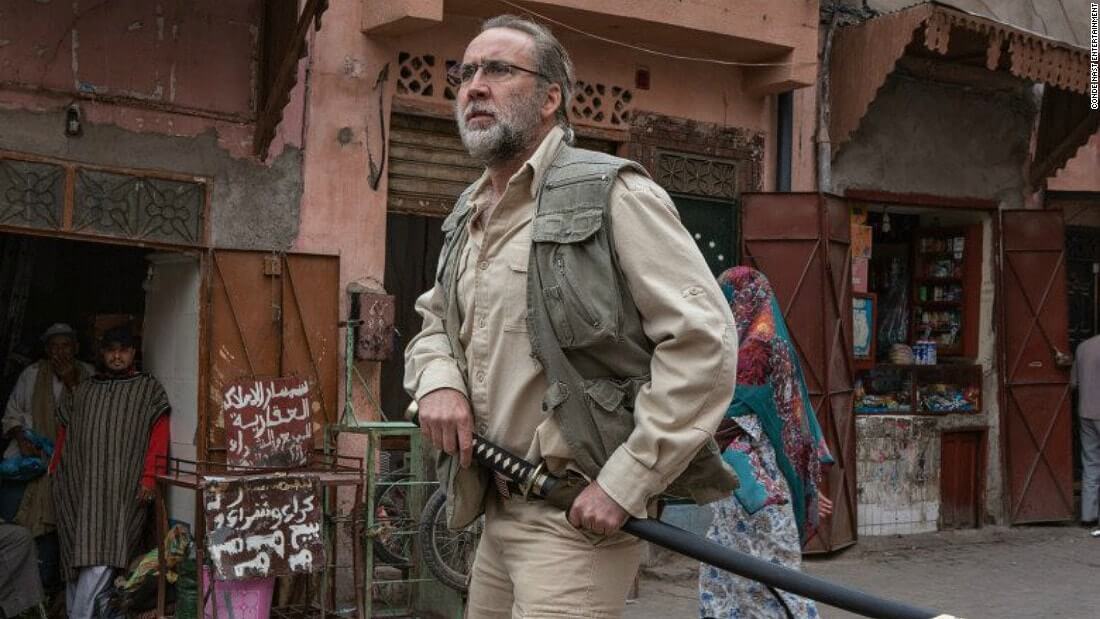A
uthor John Steinbeck once said, “People don’t take trips, trips take people.” Managing travel for an international film production adds challenges to an already challenging process. There’s a minutiae of critical detail that needs to be considered in order for everything to run smoothly. Whether you’re just starting out or a seasoned veteran, here are 9 international production travel hacks for taking your crew abroad.
- Map out timelines with a production calendar
- Work backwards
- Book film travel and lodging in advance
- Verify visa requirements for entry and access to counties
- Validate the nationality of everyone traveling
- Get copies of traveler passports
- Partner with a local production company
- Check for local incentive programs for filming
- Confirm whether you need a carnet
Planning Travel on an International Production
1. Map out international production timelines with a production calendar
Start early! Traveling a film crew for an international production is complex and requires ample lead time.
Begin by determining the processing times for first time and renewed passport holders.
Talent and crew will most likely need help with this, so thoroughly educate yourself on the process in order to assist them.
During the pre-production process, research every location, city and country that will be involved in the shoot.
Here's what needs to be determined.
- Requirements for entry into each shoot country.
- Distances and transportation possibilities for each shoot city.
- Times required for visas, inoculations & carnets.
Once a preliminary shooting schedule has been estimated, it’s time to enter the information into a production calendar.
Caption goes here...
Remember, clarity is key during this process, so present information in an easy-to-follow manner.
Travel Essentials to INCLUDE IN A Production Calendar:
- Label holidays for your country and all shoot countries
- Label the start of principal photography
- Set deadlines that avoid any penalty, rush or expedite fees
- Take weekends and holidays into account
- Pad deadline dates by 24 to 48 hours
Completing this process can help a production decide the best options from a budgetary and logistical standpoint.
If you’re using StudioBinder to create your production calendar online, you can duplicate and spin-off multiple variations of a calendar and share them with various department heads.
ORGANIZE GROUP TRAVEL WITH AN APP
Thankfully, there apps that are specifically designed to streamline group travel planning.
Tripgrid is one such app. Its planning tools integrate travel management tools like maps, itineraries, reservations, and other important travel documents into a single workflow.
It is designed specifically for travel coordinators, and allows for easy collaboration with other coordinators on your team as you go.

The Tripgrid team itinerary UI
PLANNING TRAVEL ON AN INTERNATIONAL PRODUCTION
2. Work backwards
Now that you have identified the advance time you need for all aspects. Start to adding other important production deadlines.
Then lock deadlines for hiring of talent & crew.
Hire dates should be based on the requirement with the most lead time plus a week or so.
If vaccinations need to be administered a month before traveling, make sure everyone is hired 4 weeks before principal photography.
As everyone will not be able to see a doctor on the same day, you need to give yourself room to accomplish everything.
After that, add audition and interview dates to your production calendar.
Unlike some positions, planning a film shoot for an international production requires one to work backwards.
For example, you can't hire an actor until you get through the following (listed in reverse chronology):
- Hire actors
- Call backs
- Conduct auditions
- Rent audition space
- Post casting notices
- Hire a casting director
- Hire a director
As you add every new task, ask yourself. "What needs to be done before this goal?" Continue to drill down into the specifics as you work backwards.

Nothing adds production value quite like an international production.
PLANNING TRAVEL ON AN INTERNATIONAL PRODUCTION
3. Book film travel and lodging over a month in advance
Many aspects of travel are best determined and booked four to six weeks in advance of the trip date.
While you may not think 4 weeks of preparation time is necessary, getting an early start will prevent future production headaches.
Here are some of the benefits of planning early:
- More options, better rates, and shorter travel durations.
- Avoids expediting fees for passports, visas or carnets.
- Additional time to meet vaccination requirements for talent and crew.
- Extra time to gather travel details from cast and crew.
In preparing travel, the classic William Shakespeare quote is appropriate: "Better three hours too soon, than one minute too late."
PLANNING TRAVEL ON AN INTERNATIONAL PRODUCTION
4. Verify visa requirements for entry and access to counties
Always check the destination country's requirements regarding visas.
If you need to obtain a visa to work/film in the country it is best to start early.
When trying to acquire multiple visas, consider securing a visa service or the assistance of a local production company.
While rare, you may need to obtain a visa for connecting flights in some countries, even if only passing through the airport.
Therefore, it’s best to map out the proposed travel schedule early to determine the best course of action.

Planning an international production is a little tricky. A second pair of eyes can help.
PLANNING TRAVEL ON AN INTERNATIONAL PRODUCTION
5. Validate the nationality of everyone traveling
Restrictions and additional requirements for non-western citizens are often needed when entering other countries on a business visa.
The required paperwork can be much more extensive and involve obtaining medical tests, letters from in-country business contacts and bank statements.
Check nationalities as early as possible to determine the status of your travelers.
PLANNING TRAVEL ON AN INTERNATIONAL PRODUCTION
6. Get copies of traveler passports
Not only is this useful in the booking and application process, but it is very helpful if a passport happens to get lost when traveling abroad.
PLANNING TRAVEL ON AN INTERNATIONAL PRODUCTION
7. Partner with a local production company
Securing the support of a reputable production company in the country you are visiting can alleviate potential conflict and expedite government approvals. If a significant chunk of your production takes place overseas, it could even warrant an international co-production partnership.
Foreign production companies can provide access to resources, help navigate the terrain and better understand local laws and customs. This is especially true when traveling in Non-Western countries where cultural norms can vary dramatically from what the crew is familiar with.
PLANNING TRAVEL ON AN INTERNATIONAL PRODUCTION
8. Check for local incentive programs for filming
While you never know if you’ll qualify for an incentive program in the destination country, it’s always a good idea to confirm by contacting the local film commission.
Here are some places with more details on international production incentives:
PLANNING TRAVEL ON AN INTERNATIONAL PRODUCTION
9. Confirm whether you need a carnet
Okay, you’ve heard the word carnet thrown around this article, but what exactly is it? Here a quick FAQ about carnets.
WHAT IS A CARNET?
An ATA carnet or carnet is an international customs and temporary export-import document. It is used to clear customs without paying duties and import taxes on merchandise that will be re-exported within 12 months (or less).
DO I NEED A CARNET FOR FILMING?
Most likely. The document is required in many countries when entering with film equipment. If required, you will need to generate a detailed list of all your equipment with serial numbers and retail value.
HOW MUCH COST A CARNET COST?
Authorized carnet documents generally costs upwards of $500. It is based on the amount of gear, the value of goods and the country you are visiting.
HOW DO I GET A CARNET?
Carnets must be secured through a carnet provider. To help navigate the process, customs brokers can be contracted in either the departure or destination country. A customs broker will then issue a bond that covers your gear and ensures that you will leave the country with everything listed in the carnet document.
In order to avoid custom duties and fees, every single item stated in the carnet will need to exit the country within the specified time.
HOW LONG DOES IT TAKE TO GET A CARNET
Carnets can be expedited for additional fees depending on country you are visiting. There are services like Boomerang Carnets that can turnaround carnets same day.
For example, an E29B (Temporary Admission Permit) can secure the equivalent of a carnet during Canada’s application process.
Carnets can be extended, although if this happens, the document then becomes a replacement carnet.
For more information and to determine your options, speak to a travel broker.
Up Next
Wrapping Up
Traveling a film crew on an international production can be an arduous process. But with enough lead time, and proper planning, the production can remain on course without too much trouble.
Educating yourself on the proper travel process will help to ensure the success of your production. Marcel Proust once said, “The real voyage of discovery consists not in seeking new landscapes, but in having new eyes.”
Interested in learning more about traveling a film crew? Check out our companion piece about booking crew travel domestically.

Project management tools designed specifically for productions.
Create production calendars and share them with stakeholders. Invite teammates, manage tasks, and track progress to meet your goals.
Project management tools designed specifically for productions.
Create production calendars and share them with stakeholders. Invite teammates, manage tasks, and track progress to meet your goals.

